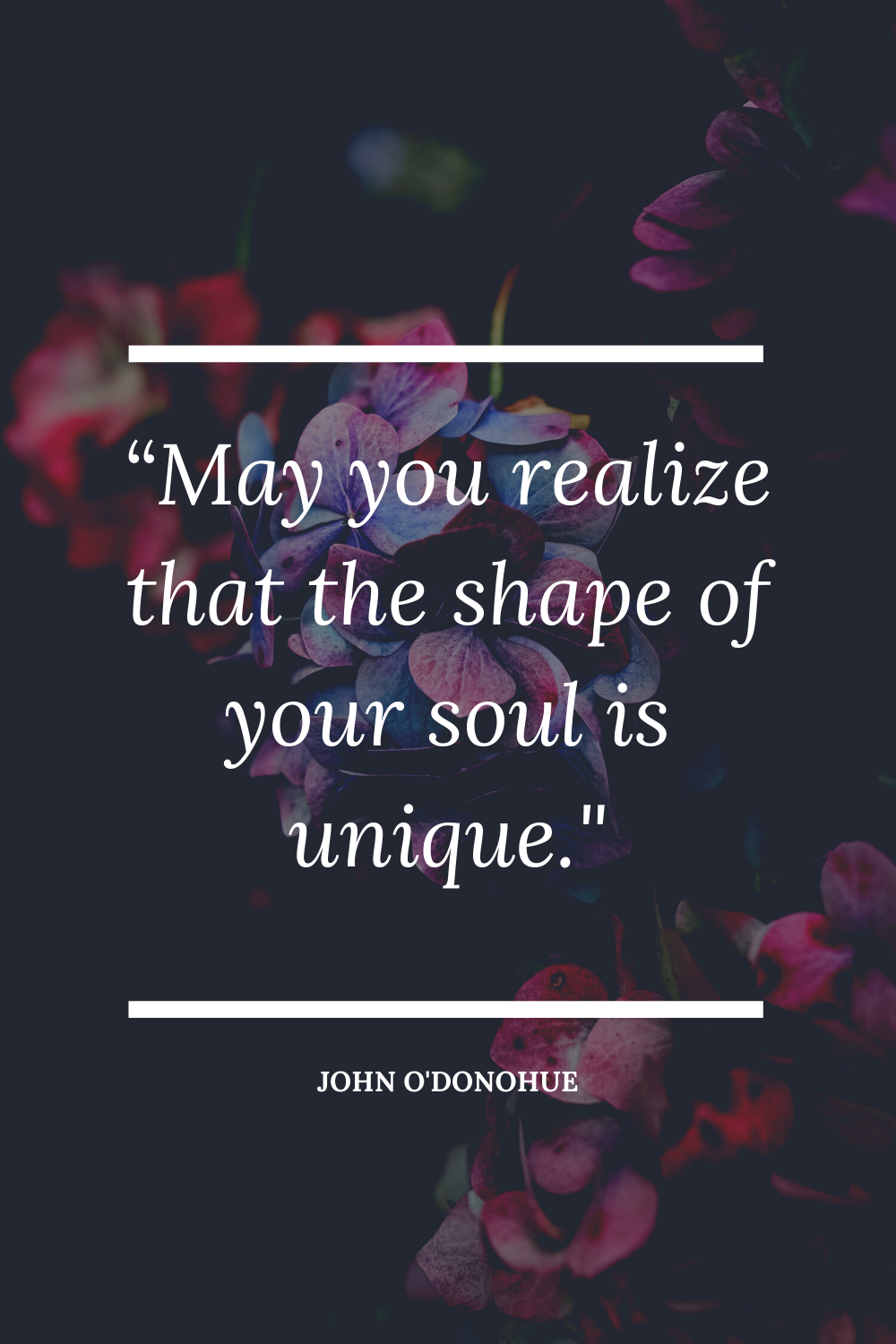The Shape of Your Soul
Ever feel like you just don’t fit in?
Sometimes I think I’ve spent more than half my waking hours feeling this way. Maybe it’s my Enneagram 4-ness coming out and no one else feels this way and you’re all going to think I’m a big weirdo (see how quickly that feeling comes to the surface?), but feeling out of place and ill-equipped to adapt is as familiar to me as breathing.
Of course, as an adolescent in rural Utah transplanted from San Francisco at age 9, I did stand out like the proverbial sore thumb. Nothing about my family or my persona was conventional: my single mom—replete with an asymmetrical haircut and high heeled boots—moved to the middle of nowhere on her own to design and build her own house; I was used to wearing anything that struck my fancy, from a matching cat sweatsuit to a floral jumpsuit (it was the early ‘90s, ok?), or whatever bizarre outfit I’d pieced together from various thrift-store visits; we didn’t attend a church, and we were almost entirely ignorant of any and all social norms that were second nature to a born-and-bred small town resident of the area, from what to bring to a potluck (anything with jello involved was a sure hit) to what made appropriate small talk (I just stayed silent most of the time, lending me an air of aloof condescension I only learned about as a freshman in college) to how one ought to style one’s bangs (curled up and back, preferably fanned out and fixed with half a can of hairspray).
On the one hand, I exalted in my difference, but on the other I hated it and the social anxiety it produced in me despite my best efforts not to care. I existed in a state of stubborn pride at my uniqueness and a desperate longing to be accepted as one of them. But everything I did only seemed to make my weirdness more obvious. I spent my middle and high school years feeling as if I were watching everyone else live lives of joy and comfort, peeking in at the window and wishing to be invited inside.
If you’re human, you’ve probably felt this way at least once in your life. I would venture to say it’s part of the human condition on earth. So it shouldn’t surprise us when this feeling arises.
But when it’s you, it can feel like you’re the only one in the world who has so much trouble assimilating into this new social situation or that new peer group, maybe at a new small group, a new job, a new school or college, even a gathering of friends sometimes, where you ought to feel most at home. It can crop up anywhere.
And that’s because it’s not about the circumstance. It’s about your heart. It’s about that sense of shame that lies buried within all of us that rears its ugly head at the most inopportune times, reminding us that we’re not good enough, not by far. Not smart enough, chic enough, thin enough, strong enough. Don’t have the right education, the right habits, the right family, the right friends. That sense that deep down there is something fundamentally wrong —with our souls, yes (and the doctrine of original sin helps believers explain the legitimate origin of some of this feeling)—but more than that: with how we were created.
The truth is that God made each of us unique, each a slightly different composite of features, strengths, weaknesses, interests, skills, passions, and preferences (Romans 12; 1 Corinthians 12:25-18; Ephesians 2:10). The shape of our souls is each a tiny bit different—as are our bodies—and to question that shape is to question God, to insult his workmanship as well as our innermost selves.
When we try to fit in, we try to minimize our uniqueness, and in so doing, we flatten ourselves, whitewashing our gifts as well as our quirks, shrinking away from the glorious vision of what God has created each of us to be and hiding behind a two-dimensional cutout of a generic, airbrushed figurine.
It is a sad state of affairs, tragic even. Because if we are not being our true selves, we cannot ever discover and live into our true calling. If we’re trying to be someone else, we’ll never be able to fulfill our unique purpose in this world because that purpose requires our unique set of gifts and passions and quirks and skills and no one else’s. If we’re busy, as Judy Garland put it, being a second rate version of someone else, we’ll never be able to step fully into the true self—and the life of meaning—that God intends for us.
For only you can fulfill the purpose God has for you. Only your fully embodied self contains what is needed to contribute to the kingdom of God in precisely the way he has intended. The world needs you. Needs who you were created to be, nothing more and nothing less.
Plus, when you try to fit in, you rob yourself of the chance to actually belong. As Brené Brown says, the opposite of belonging is fitting in. In The Gifts of Imperfection, she writes, “Fitting in is about assessing a situation and becoming who you need to be to be accepted. Belonging, on the other hand, doesn’t require us to change who we are; it requires us to be who we are.” If you’re not being who you really are, you have zero chance of feeling that deep sense of belonging that our souls crave more than anything else.
And so we must fight against that feeling of inadequacy, that impostor syndrome, that little voice of shame—the one that tells us that there’s some magic formula for the kind of person who lives that perfect life we see on Instagram, Netflix, or next to us at church or in our close friends. Because their lives are not perfect any more than yours is. And even if they were, none of their perfect lives would be perfect for you.
No matter how many times I read and write these things, I continue to struggle with wanting to blend in, to be one of the group, to effortlessly know how to act and what to say in any given situation. And so I fight, daily it seems, to recall myself to the glimpse of my path that God has revealed to me over time. It may not always look pretty—or safe or comfortable or glamorous, but it is mine. And that is what makes it perfect.
I hope this prayer may prove helpful to you as it has to me, calling me back to myself when the voices of the world threaten to overwhelm:
“May you have respect for your own individuality and difference. May you realize that the shape of your soul is unique, that you have a special destiny here, that behind the facade of your life there is something beautiful, good, and eternal happening. May you learn to see yourself with the same delight, pride, and expectation with which God sees you in every moment.”
— John O'Donohue, Anam Cara: A Book of Celtic Wisdom




